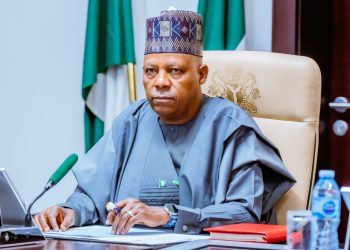The incessant strikes in the critical sectors of the nation’s economy should, as a matter of necessity, raise urgent concern, if the country is to make any appreciable impact in its quest for development.
It is more worrisome that the Federal Government has found it extremely difficult to effectively address the root causes of strikes by various workers’ unions.
The question now is whether or not the government at all levels has been thoughtful enough to realise the incurable damage and negative impact this retrogressive practice has brought upon the nation’s physique and consciousness. With this, it is believed that the government should be able to decipher appropriately the palpable paralysis suffered by the economy each time any arm of the workers’ unions embarked on job boycott.
The National Association of Resident Doctors (NARD) on January 17 declared a seven-day warning strike action, so also are members of the Senior Staff Association of Nigerian Universities (SSANU), paralysing the system. NARD, through the President of the Association of Resident Doctors, Federal Neuro Psychiatric Hospital branch, Yaba, Lagos, Dr. Kenneth Uwajeh, said the strike was in response to the government insensitivity to the plight of doctors and patients in the country.
Just last week, workers in various health institutions in the country embarked on industrial action over welfare issues.
Already, the Academic Staff Union of Universities (ASUU) is threatening to go on strike over salary cut of lecturers.
Without underscoring the level of losses incurred during such strikes, the government has in its characteristic manner continued to show defiant attitude towards workers’ strikes. Despite the workers’ agitations for enhanced working condition and better remuneration, the government’s nonchalant attitude to implement agreements reached with the unions at separate levels to keep the system going, has remained the bane of the system.
Pitiably, if it is not the medical doctors or other health workers today, or the Nigeria Labour Congress (NLC), or its other subsidiary unions, it will be the turn of ASUU or its polytechnic counterpart, the Academic Staff Union of Polytechnics (ASUP), and or the Nigeria Union of Teachers (NUT) tomorrow. But, in the unfortunate scenario, the education sector has been the worst hit in this government’s shenanigans and orchestrated actions or inactions of the unions.
It is, however, sad that this socio-economic madness perverting the nation, has become like a festering sore, which over the years has continued without no concrete cure or right medication to stagnate the polity.
Expectedly, the failure of the federal and state governments to meet the workers’ demands will continually throw the system into rounds of darkness, as the government and workers failed to reach a compromise and fashion out some workable solutions to this crisis.
More importantly, strikes should not be the best option as alternative to dialogue, as being employed by the various workers’ unions in the government establishments, either in institutions of learning or civil service, as a means of agitation for workers’ demands.
As a nation and people, who crave for development, what precipitates strikes and its attendant losses to the socio-economic development of the country should at most be a source of worry and concern to any discerning government.
It is lamentable that Nigeria has continued to witness one prolonged strike or job boycott after the other, without any end at sight.
For more than two decades now, the Federal Government and ASUU have been at one’s throat on the need to improve funding to the education sector and enhanced welfare of the lecturers, but nothing concrete has been achieved in this direction.
Only few weeks ago, the Federal Government named Mr. Wale Babalakin (SAN) as the chair of the Negotiation Committee to renegotiate the agreements with ASUU. But, how long will the government continue to renegotiate agreements reached with the unions since 2009, without any feasible plans to implement them?
What the action of the government simply portrays is that there is no serious commitment to the development of education and health of the citizenry. It is laughable if in 2010, Ghanaian universities celebrated that the system had not in the last 15 years gone on strike for one day, even in the face of several challenges.
It is high time that Nigerian Government addressed the needs of our institutions to forestall incessant strikes in the system, while the workers’ unions should embrace civil approach and return normalcy to the polity. We believe that the Federal Government and workers’ unions must enter into workable agreements.
There is no basis reaching an agreement which cannot be implemented. The workers’ unions should also make reasonable demands.















































